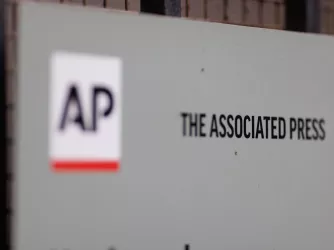Table of Contents
New OCR Letter Marks Radical Change in Due Process Guidance
Last week, FIRE sent an open letter to the Department of Education's Office for Civil Rights (OCR) in response to OCR's April 4, 2011, letter to federally funded colleges and universities nationwide, regarding their obligations to address sexual harassment and sexual assault on campus. As we discussed in our press release accompanying the open letter, OCR's latest policy guidance is, for a number of reasons, a deeply disappointing and concerning development for anyone who cares about individual rights and liberty in the academic setting.
I have already covered on The Torch the fact that OCR's April 4 letter, while calling for increased vigilance and new measures on the part of colleges and universities to address and prevent sexual harassment and sexual violence, neglects to instruct schools that their enactment and enforcement of harassment policies must fully respect students' free speech rights. The failure to even mention freedom of expression and its importance to the college campus is a departure from previous OCR guidance, which stressed that the obligation to follow federal regulations regarding sexual harassment need not be in tension with students' free speech rights. Meanwhile, Erica has written that the latest OCR guidance is part of a larger legislative and regulatory push from officials in the federal government that, while seeking to protect students from harassment, bullying, and sexual violence, threatens their core individual rights and seems to force a culture change on academia. Just yesterday, Ari covered the impact the letter has already had on schools nationwide.
Today, I take a look at how the OCR letter marks a radical departure from the federal agency's previous guidance in terms of due process.
As our open letter to OCR argues, the agency has broken new ground by mandating that universities receiving federal funding use the evidentiary standard of "preponderance of the evidence" when adjudicating student charges of sexual harassment or sexual assault, and by stating that institutions maintaining a higher evidentiary standard, such as the more robust "clear and convincing evidence" standard, will be subject to OCR review. This is a significant shift from OCR's previous guidance, which did not mandate a particular standard of proof to be used in these cases. The agency's 2001 Revised Sexual Harassment Guidance, in fact, was silent with regard to the standard of proof required of schools' grievance procedures, and noted that "[p]rocedures adopted by schools will vary considerably in detail, specificity, and components, reflecting differences in audiences, school sizes and administrative structures, State or local legal requirements, and past experience." The 2001 Guidance thus granted schools a great deal of autonomy in choosing the specific procedures to be utilized on their campuses.
OCR has now, unfortunately, mandated the preponderance standard, though its purported justifications for this unprecedented policy shift don't hold much water. First, the agency has argued that the lower evidentiary standard is not just permissible, but in fact required because "[t]he Supreme Court has applied a preponderance of the evidence standard in civil litigation involving discrimination under Title VII of the Civil Rights Act of 1964." However, while much civil litigation utilizes the preponderance standard, the Supreme Court has observed that this is in large part due to the fact that "[t]he typical civil case involv[es] a monetary dispute between private parties. Since society has a minimal concern with the outcome of such private suits, plaintiff's burden of proof is a mere preponderance of the evidence. The litigants thus share the risk of error in roughly equal fashion." Addington v. Texas, 441 U.S. 418, 423 (1979). By contrast, the Court has held that an intermediate standard of proof may be employed "in civil cases involving allegations of fraud or some other quasi-criminal wrongdoing by the defendant," because the "interests at stake in those cases are deemed to be more substantial than mere loss of money and some jurisdictions accordingly reduce the risk to the defendant of having his reputation tarnished erroneously by increasing the plaintiff's burden of proof." Id. at 424, 425. What's more, in the educational context, the Court has declared that when "a person's good name, reputation, honor, or integrity is at stake because of what the government is doing to him," due process requires "precautions against unfair or mistaken findings of misconduct and arbitrary exclusion from school." Goss v. Lopez, 419 U.S. 565, 574, 580 (1975) (quoting Wisconsin v. Constantineau, 400 U.S. 433, 437 (1971)). Consequently, OCR's rationale regarding the use of the preponderance standard in civil litigation does not pass muster in this context.
OCR also argues that this policy shift is warranted because OCR itself "uses a preponderance of the evidence standard when it resolves complaints against [university] recipients." However, this comparison is flawed because when OCR determines compliance, it is engaged in administrative review, with the stakes being schools' federal funding. By contrast, a university's use of a lower evidentiary standard threatens an individual student's continued matriculation, personal reputation, and career prospects. The latter situation involves precisely the type of "quasi-criminal" adjudication for which the Supreme Court has deemed the "clear and convincing" standard to be appropriate. Therefore, we stated in our open letter:
As a result, a campus judicial hearing charged with deciding between guilt or innocence much more closely resembles a criminal proceeding than OCR's determinations of institutional compliance. Given the substantial differences between OCR's own noncompliance and fund termination hearings and the campus judicial proceedings against a student accused of sexual harassment or sexual violence, the fact that OCR itself employs the preponderance of the evidence standard in no way supports the conclusion that schools must also employ this standard in their own grievance procedures as a necessary condition of providing prompt and equitable resolutions as required by Title IX.
OCR's policy shift fails to adequately protect the rights of any student accused of sexual harassment or sexual violence. Given the seriousness of these charges and the consequences they carry for a student who is ultimately found guilty—not only because schools will typically institute lengthy suspensions or even immediate expulsion for these violations, but because this type of finding will follow a student around for the rest of his or her academic career and can surely be expected to have an impact on employment prospects—schools should be affording these accused students more due process, not less. It is deeply troubling that schools can now punish students for allegedly committing a very serious offense under such a relaxed, "more likely than not" standard. Given the value of a college education to one's personal, professional, and intellectual growth, the OCR mandate is failing our students' liberty by depriving them of crucial procedural rights. (It is worth noting here that the proposed federal Campus Sexual Violence Elimination (SaVE) Act, part of the legislative and regulatory push about which Erica wrote, would likewise mandate the preponderance of the evidence standard in campus adjudications of complaints of sexual violence and stalking.)
Moreover, as we stated to OCR, the policy shift to a preponderance standard not only harms accused students, it harms the interests of society at large in providing a just process and a proper adjudicative result. Our open letter puts it well on this point:
Requiring a lower standard of proof does not provide for the "prompt and equitable" resolution of complaints regarding sexual harassment and sexual violence. Rather, the lower standard of proof serves to undermine the integrity, accuracy, reliability, and basic fairness of the judicial process. Insisting that the preponderance of the evidence standard be used in hearing sexual violence claims turns the fundamental tenet of due process on its head, requiring that those accused of society's vilest crimes be afforded the scant protection of our judiciary's least certain standard. Under the preponderance of the evidence standard, the burden of proof may be satisfied by little more than a hunch. Accordingly, no matter the result reached by the campus judiciary, both the accuser and the accused are denied the necessary comfort of knowing that the verdict reached is accurate, trustworthy, and fair. The lack of faith in the judicial process that such uncertainty will likely engender should be of great concern to OCR and recipient institutions.
Ultimately, therefore, everyone is made worse off by the mandate to use the preponderance standard. Providing the necessary due process rights to the accused is a fundamental principle of American justice, and OCR has made the ability of universities to do that in cases of sexual harassment and sexual violence much more difficult.
We will continue to have more to say on OCR's letter and its implications for students' rights and campus disciplinary proceedings, so stay tuned.
Recent Articles
FIRE’s award-winning Newsdesk covers the free speech news you need to stay informed.

LAWSUIT: Tennessee town cites woman for using skeletons in holiday decorations

White House barring AP from press events violates the First Amendment

FIRE opposes Virginia’s proposed regulation of candidate deepfakes
